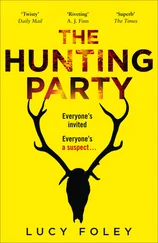Staying away from the family kept her from feeling old, too. Nothing like children growing up and turning into difficult adults to make you feel your age. Particularly if they thought you were an old lady, and treated you as one. She did not look at herself as she dressed in her soft velour exercise suit; she did not want to be reminded of her age. If they were in the gym, she’d throw them out. It was her turn.
But the gym was empty, silent, scented with her favorite aromatics. They had not been here; the cushions of the lounger had dried. Cecelia locked the doors and set up her simulator. She would ride this morning, no matter what anyone said.
An hour later, refreshed after a pleasant but demanding ride over a training field, she stowed the simulator and pocketed the cube. This was not a group she wanted riding over her shoulder, so to speak. She didn’t want to hear whatever they might say. She looked at the gym’s status board, and saw that they were all still in the guest suites. Fine. She stripped, showered, and let herself into the pool enclosure, blanking the canopy and turning the waterstream up a little. The pool’s surface heaved, then steadied, as the current increased. She swam against it vigorously, then climbed out, toweled dry, and wrapped herself in her heated robe. Another check of the board; they were moving now. She grabbed her exercise suit and headed for her own suite; she should be safe.
They did not meet at breakfast. Cecelia ate in her own suite, as she often did anyway, and she paid no attention to the young people. She had her own daily routine—checking with Cook, listening to Bates’s report, going over whatever her captain chose to tell her about the ship status. With Olin, that had often been a single bare statement that the ship was proceeding according to plan. She wondered about Serrano. The first day’s report had been two pages long, most of it incomprehensible detail about why she’d chosen to move something from one storage hold to another . . . as if Cecelia cared. As long as staff knew, and could find, whatever she wanted, she herself didn’t want to worry about something as technical as “center of mass” and “potential resonance interference.”
This morning, it was one page, headed with “Emergency Drills.” Cecelia blinked. Why should that concern her? The crew would have emergency drills, she assumed, but yachts, unlike liners, did not have to inconvenience their passengers. She read on, already resisting the idea. This Captain Serrano must think she was still a military commander. Her house staff to be given emergency assignments? She and her guests expected to learn and follow emergency procedures? How absurd! She remembered the fire drills, long ago when she had attended the Sorgery School, and how they had all known the drills were useless. If a fire ever did start, it would not wait around for people to get out of bed, find their assigned partner, and “walk down the stairs quietly, without talking, and without pushing or running.”
Captain Serrano’s reasoning, when she got that far, made somewhat more sense. She had not really thought about the things that could go wrong, barring late meals or illness in a crew member. The vulnerability of a small yacht wandering through interstellar space hadn’t occurred to her; everyone she knew traveled in space, and the rare disappearances and accidents were no more frightening than accidents groundside. Sometimes trains and aircraft and limousines crashed; sometimes yachts disappeared. For a moment she almost felt it, the fragility of the ship, the immensity of the universe, but she pushed that away. It was like thinking about the fragility of her skull and the size of a horse and the fence it was approaching. . . . If you thought about it, you’d sit in a padded cocoon forever, and that was ridiculous.
Still . . . perhaps some emergency drills might be a good idea. Not this many, and certainly not without adequate warning (what if she were in the swimming pool?) but some. She called Bates.
“Yes, madam. Captain Serrano has already spoken to me about this matter—she considers it important to your welfare. She would like to help me give your staff instruction, although that would take time—”
“Before these emergency drills?”
“Yes, madam.”
“I suppose . . . it’s something that should have been done before, though none of the others complained.”
“Captain Serrano seems very competent, madam.” Which meant that Bates approved. Damn. She had better agree, so it could be her idea, because when Bates approved of something, it happened, owner or no owner. She had wished more than once that he was her captain. He had a talent for command.
“Very well, then. You and the captain see to it, but if she gives you too much trouble, Bates, feel free to let me know.”
“I don’t think she will, madam. She’s not like the others.” Whatever that meant. Cecelia didn’t ask. She asked how the young people were doing, with no real interest, and Bates reported that they had appeared to enjoy breakfast, and were now viewing old entertainment cubes in the lounge. Cecelia felt an unreasonable irritation that they were happy. They were her guests; they ought to be concerned about her. She went into her garden to play with the miniature equids. . . . They would always come for sugar.
Ronnie watched Raffaele covertly, and wondered if she had heard about the opera singer. He hadn’t really noticed before, thinking of her as George’s girl, but she had a lovely line of jaw and throat when she lifted her head. Slender without weakness, she seemed hardly aware of her grace. . . . She was chuckling over something Buttons had said. Bubbles, beside him, waved a hand in front of his face.
“Wake up, sweet—you’re staring right through Raffa, and it could make me jealous.” Bubbles exuded sensuality of a very studied sort, from silver nails to tumbled blonde curls, from the deep-plunging neckline of her clinging jersey to the cutouts on the long black tights. Next to the opera singer, he had always thought of Bubbles as the sexiest girl he knew, but at the moment he was finding her tiresome. She had been singing along with the lyrics from the cube, and the opera singer had spoiled him. Now he could hear the breathiness and the slight errors of pitch.
“Sorry,” he said. “I was wondering what we’re going to do all that time at your father’s. Surely not fox hunting.”
“It’s not that bad,” Buttons said, looking up. “I rather like it, sometimes. If we jiggle the weather-sats, so it’s not as cold and wet—”
“Father will find out,” Bubbles said. “He likes authenticity.”
“I don’t see how you can have authenticity when the foxes aren’t even foxes,” Sarah put in. “Didn’t I read somewhere that they’re actually reverse-gengineered from cat genes?” Ronnie doubted her interest in bioengineering; she and Buttons had signed the second-level prenuptials, and this was her first official visit to his family. She would be trying to make points.
“A chimaera,” Buttons said, settling into the lecturing tone that made him less than popular in the regiment. Stuffy, in fact, because he couldn’t just answer a question: he had to explain all the juice out of it. “Nobody bothered to save Old-Earth red fox genes, so what Dad’s people did was go from descriptions, and use what seemed to work. Luckily Hagworth had already done jackals from dogs, and two of the fox species that got publicity. . . . The real problem was getting the color and the bushy tail with a white tip. Our neo-foxes are part kit fox, part jackal, a bit of cat, and raccoon, for the tail.”
“I didn’t know anyone had saved raccoon genes; I thought they were too common.”
“Only to give an outcross for the red panda,” Buttons said. Ronnie would not have expected him to know, but after all his father was an enthusiast on many forms of hunting and preservation. Buttons went on to discuss the genetic possibilities at length. Ronnie let his mind drift . . . to the opera singer, in whose bed he had learned about things that before had been only rumors . . . to the prince, whose jealousy he had been glad to arouse . . . to that night in the mess when he had boasted . . . somehow it didn’t seem quite as clever now as it had then. Perhaps Aunt Cecelia was right, and he had been a cad. No. The prince should have been a better sport.
Читать дальше












